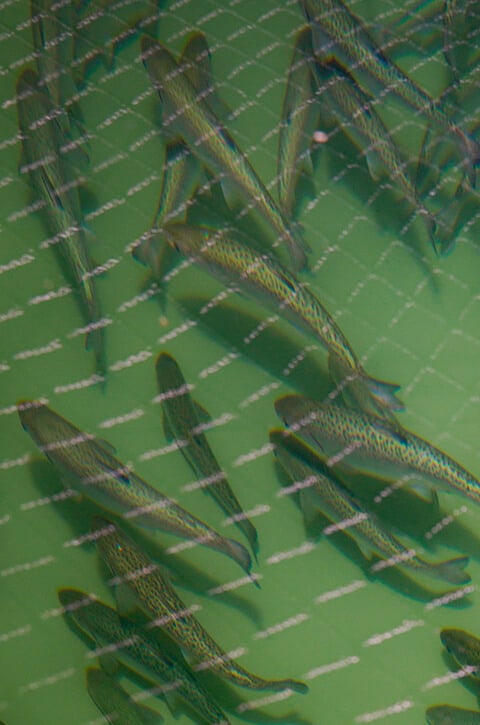Getting to know our King salmon
27 February 2018
New Zealand globally is the largest producer of farmed king (Chinook) salmon which is renowned for its excellent quality. Working closely with the industry, scientists at Nelson’s Cawthron Institute have set out to increase our understanding of king salmon biology to optimise production. With three sizable research projects looking at various elements of king salmon production, they’re uncovering the secrets of this treasured species.
King salmon is a premium quality salmon with superior levels of healthy Omega-3s. It’s no surprise it’s in demand. Our King salmon industry exports to over 30 countries, employs hundreds of Kiwis, and in 2016 earned nearly $130 million in revenue . It’s also a sustainable form of food production, with NZ’s industry recognised as the world’s greenest by the Global Aquaculture Performance Index. There’s no doubt science will play a significant role in supporting further sustainability and business success.
Cawthron has long recognised the potential of this species for New Zealand, and continues to invest in important research infrastructure. Construction is well underway on the new addition to the Cawthron Aquaculture Park; a purpose built multi-million dollar salmon research facility. The facility will comprise two 9 tank (8,000 litres each) recirculation systems that can be operated separately or together for replicated trials, and can be used with both salt and fresh water. There is also a third 9 tank system (2,500 litres each) for physiology and behaviour trials. These systems will enable scientists to study salmon in a controlled environment right up to harvest size.
Research trials in the new facility are set to begin this year. These trials form part of the Feed-efficient salmon for the future programme funded by the Ministry for Business, Innovation and Employment (MBIE). Cawthron Senior Aquaculture Scientist Dr Jane Symonds leads the programme and is excited to apply her knowledge from previous studies and industry experience, to research within the purpose built facility.
“The facility is shaping up very well. I’ve received positive feedback on our plans from industry and other salmon researchers. The fully insulated facility will have the capacity to run four temperatures at the same time. This allows us to replicate environments like those found around New Zealand, and is important for ensuring outcomes are applicable,” said Dr Symonds.
Since the project began, scientists have been busy visiting farms around the South Island to collect samples and data to determine what makes a salmon healthy and efficient. Cawthron reported back to industry late last year and progress is good. Senior aquaculture scientist, Dr Seumas Walker acknowledged challenges around sampling in remote locations, but with help from the farmers and collaborators, a working mobile lab and dedicated sampling team has been established.
The Institute is also in its third year of research with NZ King Salmon Ltd, on a project into the specific dietary requirements of this species. In general, feed can account for up to 60% of harvested fish costs and is the biggest single expense in salmon aquaculture. Any gains that can be made to improve feed conversion into marketable product is significant. A number of diet trials have taken place and the results are proving useful, not only in feed conversion but also with regard to sustainability and environmental aspects. Other project supporters include Seafood Innovations Ltd (SIL), MBIE, Nelson Marlborough Institute of Technology (NMIT), and multiple commercial feed companies.
Further to these programmes, a new project is set to benefit this industry and aquaculture more widely. Cawthron’s Aquatic Health research programme led by Dr Barrie Forrest aims to advance efficient and timely diagnosis, prediction, and management of aquatic diseases that may impact the aquaculture industry. This is supported by the MBIE Endeavour Fund. Scientist Dr Steve Webb is involved in the project and said, “there’s an urgent need to address challenges to protect existing aquaculture production and to provide robust research that industry and regulators can use to inform decision-making.
“This is important to ensure procedures and regulations are relevant and suitable for New Zealand. The proposed research will also enable us to improve on existing health monitoring and diagnostic approaches. This will provide more timely and conclusive results so that emerging issues can be addressed before substantial losses have occurred.”
The health research will provide new tools for understanding and managing king salmon health to enable the industry to optimise production and continue to farm robust healthy stocks. There are common themes to the programmes underway at Cawthron; each sets out to answer important King salmon questions and provide research-based solutions, while working closely with industry.
